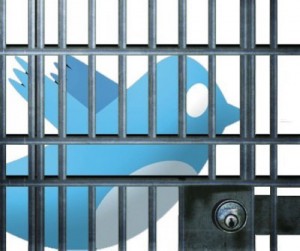Twitter’s stocks will be locked up in a birdcage for almost half a year. After a very successful IPO launch, Twitter announced a “181 day lock-up period for its shares”.
What does this mean for investors? In some ways, this move may not be the best method for delivering confidence to its shareholders. The fact that Twitter has constrained shareholders from selling stocks may indirectly display a lack of confidence from Twitter; the company does not want shareholders to leave Twitter in the case that share prices drop. I know if I had shares in Twitter, I would not feel at ease about having to hold Twitter shares for 181 days despite how the market is doing.
However, a finance professor at the University of Florida argues that this should provide confidence because it shows “insiders are not going to be dumping shares at the first opportunity.” From this view, I can understand why Twitter would have such a long lock-up period. After the failure of Facebook’s IPO launch, people may not feel very safe with a giant volatile social media firm.
Still, the best method of keeping its shareholders would be to show sustainable stock prices, not simply locking-up the shareholders.
